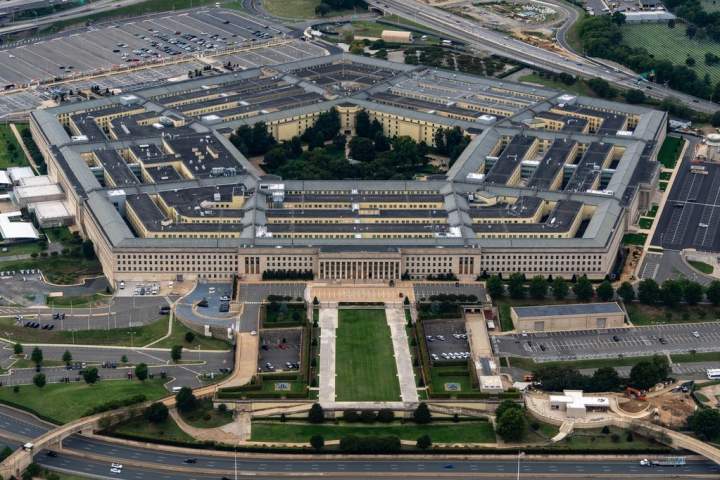Politics
U.S. Outlets Reject Pentagon’s New Media Rules, Access Cut Off

Nearly all accredited journalists in the Pentagon press corps will lose access to the U.S. military’s headquarters starting March 15, 2024, after refusing to sign a new media policy that many claim infringes upon their First Amendment rights. The policy requires reporters to sign a “pledge” agreeing to new restrictions, including limitations on their movement within the Pentagon and a stipulation that only pre-approved information could be accessed and reported.
Numerous prominent media organizations, including the New York Times, NPR, The Associated Press, and Reuters, as well as conservative outlets like Newsmax and Fox News, announced they would not comply with the new regulations. In a joint statement, major networks such as CNN, ABC News, NBC News, and CBS News expressed concern that the policy “threatens core journalistic protections.”
As of the deadline on Tuesday evening, only One America News Network, known for its strong support of former President Donald Trump, had signed the pledge. The new policy stipulates that credentialed journalists will require an escort and a visible press badge to access most areas of the Pentagon. Additionally, a 17-page directive outlines that information will only be released to journalists following approval by an appropriate authorizing official.
Chief Pentagon spokesperson Sean Parnell characterized the new rules as “common sense media procedures,” asserting that they do not block journalists from reporting news. Nonetheless, the policy indicates that any journalist encouraging Pentagon officials to violate these rules could risk losing their access. This aspect has raised alarm among media professionals who feel it undermines their ability to seek information.
The Pentagon’s push for tighter control follows a series of news reports that contradicted official statements, including a contentious defense intelligence assessment regarding U.S. military strikes on Iranian nuclear facilities in June. Pete Hegseth, U.S. Defense Secretary and a key figure in implementing these changes, has emphasized the need to curb leaks of sensitive information, suggesting that journalists have previously accessed secure areas without proper identification.
During an event earlier this week, Hegseth remarked that the new measures are intended to safeguard national security. Former President Trump echoed this sentiment, expressing concern over potential risks posed by journalists interacting with military personnel. He acknowledged that while the Pentagon should not dictate what reporters can cover, he supported efforts to maintain security protocols.
The Pentagon Press Association has criticized the new policy, arguing that it could expose journalists to prosecution for simply seeking information. They highlighted that reporters have historically worn press badges and been restricted to unclassified areas, similar to other personnel without security clearance. Such longstanding access rules, they contend, have not posed a national security threat.
In an op-ed published on NPR, Pentagon reporter Tom Bowman criticized the new policy, stating it hampers journalistic efforts to provide crucial information to the public. He recounted instances in which he reported on military operations that contradicted official narratives, underscoring the importance of maintaining open communication with Pentagon officials.
The controversy surrounding these new rules has prompted statements of opposition from various media outlets, including the Washington Times and international organizations like Al Jazeera and The Guardian, all of which have refused to sign the new policy. The implications of this situation for the future of military reporting remain significant, particularly given the U.S. military budget, which approaches US$1 trillion.
While the Pentagon aims to implement tighter controls, the reactions from the media industry suggest a robust commitment to maintaining journalistic integrity and access. As the situation unfolds, the impact on the relationship between the military and the press will likely continue to be a topic of intense scrutiny.
-

 Politics4 weeks ago
Politics4 weeks agoSecwepemc First Nation Seeks Aboriginal Title Over Kamloops Area
-

 World5 months ago
World5 months agoScientists Unearth Ancient Antarctic Ice to Unlock Climate Secrets
-

 Entertainment5 months ago
Entertainment5 months agoTrump and McCormick to Announce $70 Billion Energy Investments
-

 Science5 months ago
Science5 months agoFour Astronauts Return to Earth After International Space Station Mission
-

 Lifestyle5 months ago
Lifestyle5 months agoTransLink Launches Food Truck Program to Boost Revenue in Vancouver
-

 Technology3 months ago
Technology3 months agoApple Notes Enhances Functionality with Markdown Support in macOS 26
-

 Lifestyle3 months ago
Lifestyle3 months agoManitoba’s Burger Champion Shines Again Amid Dining Innovations
-

 Top Stories2 months ago
Top Stories2 months agoUrgent Update: Fatal Crash on Highway 99 Claims Life of Pitt Meadows Man
-

 Politics4 months ago
Politics4 months agoUkrainian Tennis Star Elina Svitolina Faces Death Threats Online
-

 Sports5 months ago
Sports5 months agoSearch Underway for Missing Hunter Amid Hokkaido Bear Emergency
-

 Politics5 months ago
Politics5 months agoCarney Engages First Nations Leaders at Development Law Summit
-

 Technology5 months ago
Technology5 months agoFrosthaven Launches Early Access on July 31, 2025





















